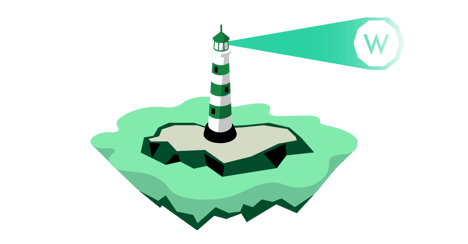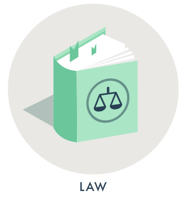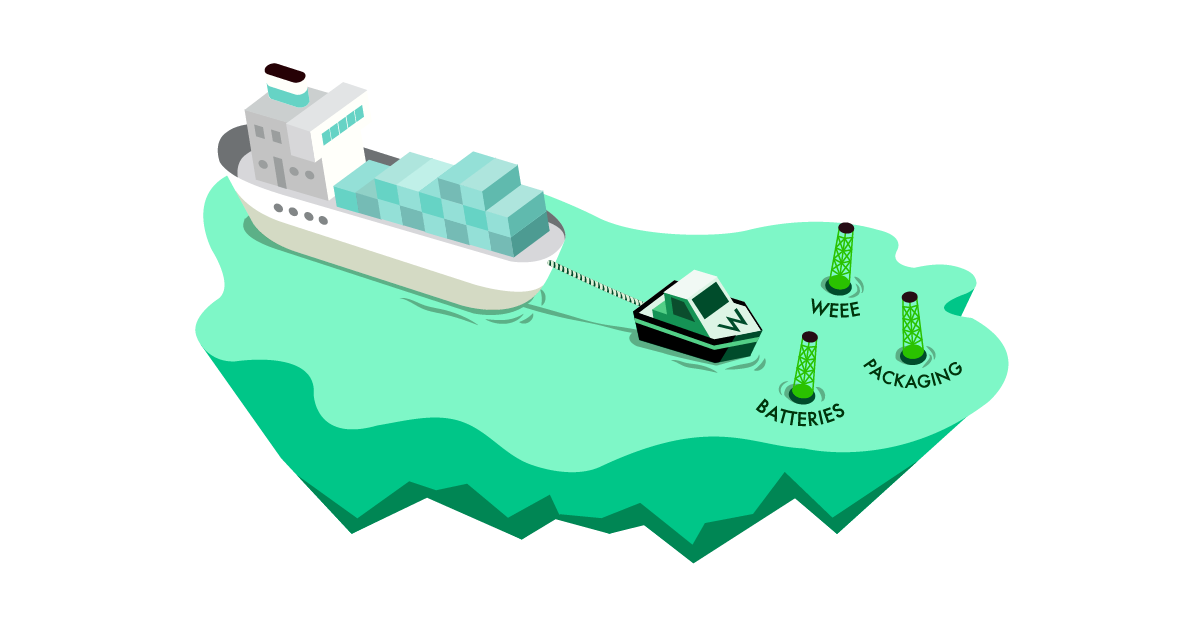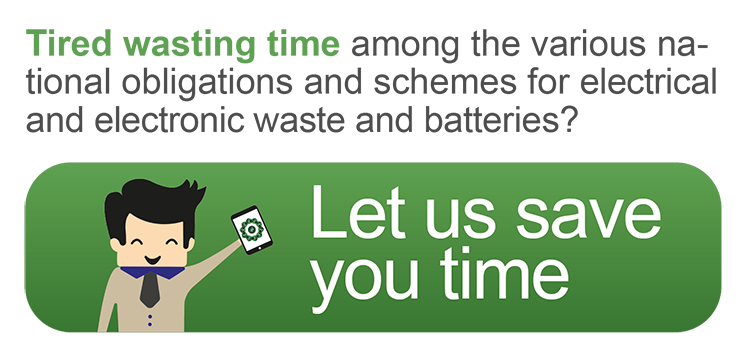A little bit of background on the European directives…
EU environmental legal framework: the basics
The European Union has developed an environmental legal framework for product end-of-life management regarding:
 |
 |
 |
- Electrical and Electronic Equipment (EEE), aka the WEEE Directive (2012/12/EU), launched in 2002 and updated in 2012
- Batteries, aka the Battery Directive (2006/66/EU), published in 2006 and covering portable, industrial and automotive batteries
- Packaging, aka the Packaging Directive (94/62/EU), published in 1994 and covering product packaging (primary and secondary packaging) and transport packaging (tertiary).
The aim of these directives is to secure hazardous substances, recycle materials and localise a competent, state-of-the-art recycling industry as well as promoting and developing circular economy models.
Producers are defined as the key players able to organize compliance as well as to continuously improve the quality and lifecycle fo their products: authorities consider they can have an impact of the design of their product to reduce the footprint of such devices, batteries and packaging.
The member states of the European Union have transposed each European directive into their national law. Whilst EU member states have integrated the targets and concept of the directives, differences of interpretation and implementation can be observed: harmonisation is not yet in place amongst EU member states.

You want to handle legal requirements simultaneously in several countries?

Companies facing obligations: “Producers”
Legislation requires “producers” (companies placing EEE, batteries or packaging on the market for the first time in their country) to fulfil a set of obligations in each country. In particular, companies considered as “producers” are required to fulfil administrative (i.e. registration, reporting), financial and also - directly or indirectly - collection and recycling obligations in respect of WEEE, batteries and/or packaging.

For example, according to the WEEE directive, “producers” are companies that are:
- established in an EU member state, manufacture equipment and sell it within this member state
- established in an EU member state and import (from the EU or elsewhere) equipment to sell in this member state
- established in an EU member state and purchasing products (from another company located in the same country) to resell in this member state under their own name or trademark
- selling equipment to end users located in a member state, and are established as distance sellers in another member state or in a third country.
“Producers” are usually defined nationally according to harmonised directive criteria such as
-
locally registered company invoicing B2B or B2C clients in the country
-
for WEEE notably:
-
Shipment of products (who is responsible of shipment)
-
Sales volumes (quantities or weights)
-
Distance seller status
-
Etc.
-
As a consequence, companies that sell equipment might be obliged to manage 3 sets of obligations per country for one product or sales unit:
-
The EEE itself: WEEE obligations
-
The integrated (or separately delivered) battery: battery obligations.
-
The packaging of the equipment: packaging obligations.
Nevertheless, depending on the sales and shipment channels, a company might be considered as a producer for WEEE and batteries but not for packaging (or vice versa) in a given country.
In order to satisfy a client’s request or to simplify and harmonise proceedings, it is also sometimes possible for a company to assume and manage obligations voluntarily in respect of WEEE, batteries or packaging (i.e. instead of their client).

In summary, a producer is a company:
- established in a country and making available in this country EEE and/or batteries and/or packaging for the first time, importers or companies acting as the first importer, local subsidiaries, e-shops etc. Any company can effectively be considered “a producer” as long as they are the party placing (invoicing) a product or battery or packaging on the market for the first time in a given country
- established in one country and selling directly to end-users through distance selling in other European countries, e.g. e-commerce
Some e-shops are only established in one country (in or outside the EU) and sell to many countries at the same time, directly to end-users: they are classified as producers since they are they party first placing a product on the local market.
In addition to “producers”, distributors also have the responsibility to take back EEE from consumers.
Waste Electrical and Electronic Equipment (WEEE), waste batteries and waste packaging are managed in each EU member state of the EU and beyond where similar legislation exists (i.e. Switzerland, Norway, Iceland, Turkey, Israel, etc.)
For more information, please contact us to raise your concerns or questions!
Romain Letenneur




